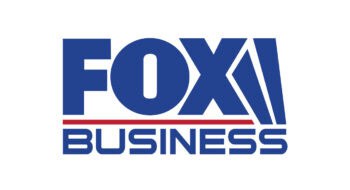Trump tariffs: Retail technology vendors help dealerships pivot

Even before the Trump administration tariffs on imported vehicles kicked in on April 3, retail technology companies started pivoting to help dealership customers handle the industry’s latest challenge.
Impel, CDK, Reynolds and Reynolds, myKaarma and Cars Commerce are among vendors who tweaked their offerings to address dealerships’ new needs, or reminded customers their existing software and services could help them during their latest business obstacle.
Maurer said technology is an important tool to help dealerships navigate tariff-related business changes quickly and efficiently. Specifically, she said, it can be useful in areas such as properly pacing imports to maximize supply chain efficiency, determining when to pay tariffs and keeping pricing “more agile.”
Adapting AI to the new tariff environment
Impel, of Syracuse, N.Y., almost immediately tweaked its core software to aid dealerships faced with tracking tariff-driven pricing changes affecting their inventories, CEO Devin Daly told Automotive News.
The company makes an artificial intelligence-driven digital marketing platform.
“When we saw dealers experiencing a spike in tariff-related [customer] inquiries, in less than a day we were able to update our AI’s knowledge base to effectively handle these questions about tariffs,” Daly said. “Around the clock now, even when [dealerships are] closed, they’re able to answer not only questions about what tariffs may mean for pricing in general, but we also allow dealers to customize — either at the dealership level or the OEM level — how they want to handle these tariff questions.”
Daly said working with AI enabled the company to train its technology within 24 hours “to handle what can be sensitive and tough questions.”
“We’ve been talking to them and saying: ‘Hey, get ready for the tariffs. If President Trump puts them in, you’ll need these tools,’ ” he said.
The company’s software products, backed by artificial intelligence, can help dealerships boost revenue in the service department and beyond at a crucial time.
“Look at every corner of your business,” Nath said. “It’s not about hitting home runs. It’s about the singles and doubles [and if you] can, find efficiency in every step of the journey.”
DMS companies acted quickly on tariffs and aiding automation
Reynolds and Reynolds President Chris Walsh said the dealership management company took quick action to help dealerships reduce their costs in the wake of tariffs.
“Our Reynolds Performance Managers have been in our customers’ stores daily since the new tariffs were announced,” Walsh said in an emailed statement. “They have been working with each dealership to help them do more with less and get the most out of every opportunity.”
Walsh said dealerships have been focusing, in part, on used-vehicle acquisition, reconditioning and merchandizing in the wake of “recent market volatility.” Since the tariffs were announced, they’ve also targeted lead management, finance and insurance because of increased demand, and service and parts operations in the wake of higher volume.
“These areas will likely continue to be a focus as the impacts of the new tariffs occur over the course of the year,” Walsh said.
Walsh said Reynolds, of Dayton, Ohio, is reminding customers a number of its products can help manage tariff-affected businesses, including AI tools using its new Spark AI data layer “to help them do more with less and get the most out of every opportunity.”
CDK Global also is trying to help dealerships boost their tariff-era efficiency with initiatives such as a new vehicle inventory product launched in January. Bruce Johnson, CDK’s vice president of product marketing, said the tariffs have increased dealerships’ demand for efficiency tools overall, and CDK is responding. Better use of data also has gained importance, he said.
“One of the big things we’ve been hearing from dealers is they put credence in” relying on gut instinct for pricing, Johnson said. “But there’s an increased importance on the comfort and confidence they get from … bolstering that with data … The tariffs amplify that because of the volatility ripples that it’s going to go through — both availability and pricing.”
Johnson said CDK is focusing on providing customers data that is as rich as possible and in real time “so they can stay in tune with what is going on in the market.”
Cars Commerce, which includes vehicle listings company Cars.com, is emphasizing existing tools that can help dealerships and customers navigate tariff adversity.
They include its Affordability Report, which helps identify and locate affordable vehicles, and the company’s American-Made Index, which ranks vehicles on how much of a vehicle — in terms of assembly location, parts content, engine and transmission origins and more — is U.S. based.



